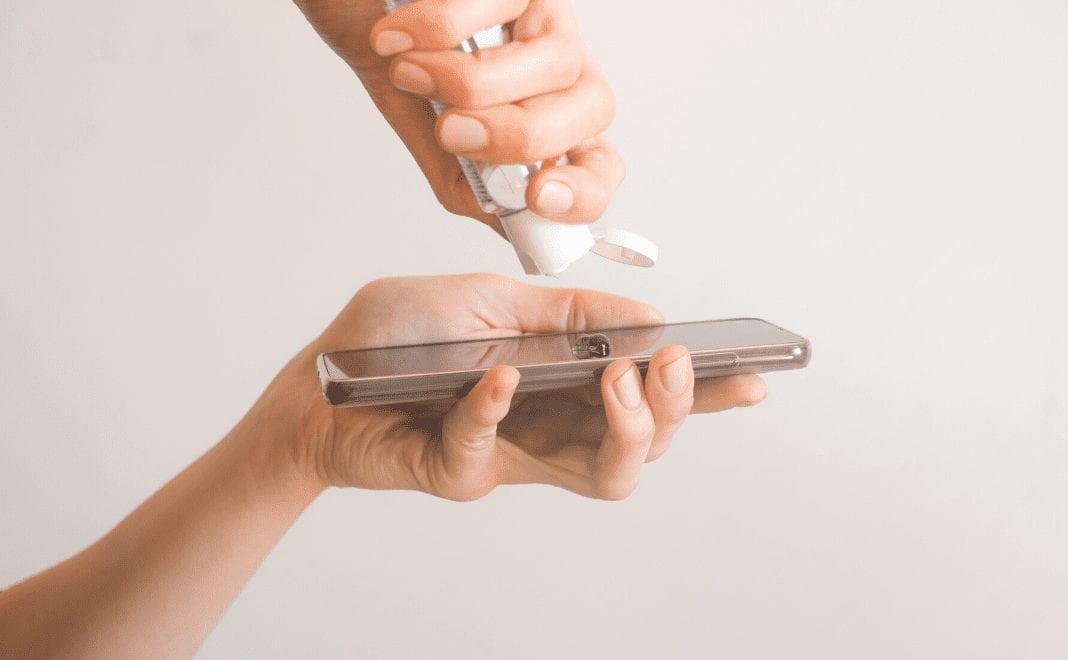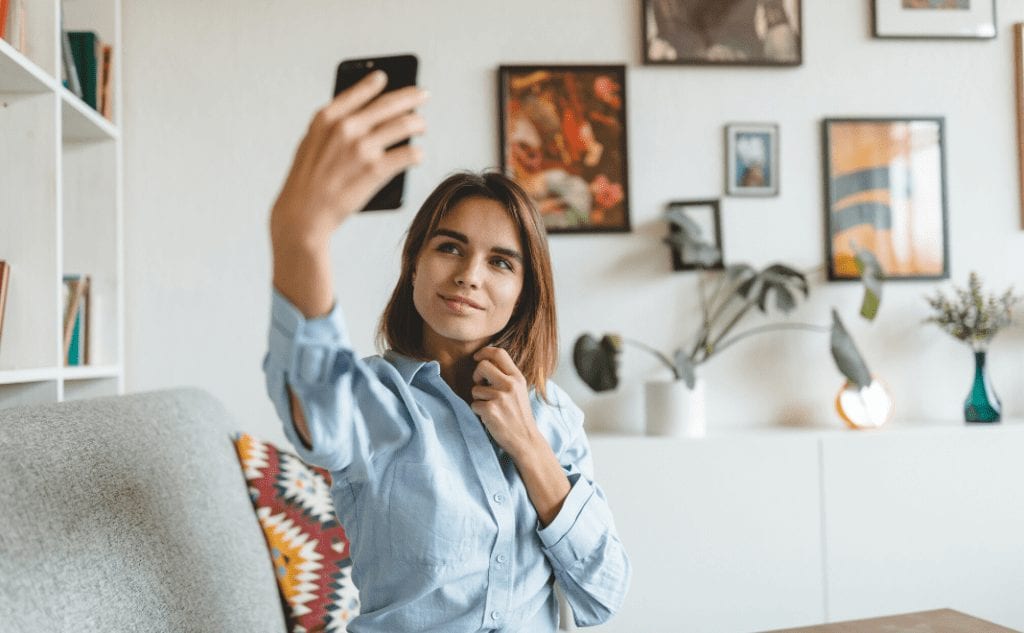8 Ways Your Smartphone Could Be Damaging Your Health
Advertisements

Can you imagine living without your smartphone? Exactly. Today you need to have a smartphone to function in society, it’s not even an option.
The first smartphone was created in 1992 by IBM and was called the Simon Personal Communicator, more than 15 years before Apple released the iPhone. In less than 30 years, it became an indispensable item to our lives. We need it to stay in touch with family and friends, work, date, help us find our way and even tell us if we’ve exercised enough.
Okay, they’re great and they can also be an asset in a life or death situation. Though do we talk enough about their downsides? First of all, we don’t know yet about the impact smartphones can have on our health, because we don’t have enough data. Also, smartphones can impact negatively our mental health and contribute to sleep issues and depression. We think it’s important to let you know about these downsides, a little awareness can’t hurt right? We hope that it will help you switch off your phone from time to time.
Continue Reading This Article
Exposure To Radiations

There are different types of radiations and we classify them according to the amount of energy they carry. Ionising radiations carry a lot of energy and an excessive exposure can damage our cells and DNA, causing burns, sickness or cancer. Non-ionising radiation can cause heating – this is how microwaves work. The radiations emitted by smartphones fall into this category, however, it has less than two watts of power, causing only a tiny amount of warming with not enough energy to damage our cells.
The American Cancer Society (ACS) states that smartphones could cause some risk associated with cancer, but the evidence is not strong enough to be considered causal and needs to be investigated further. If you are concerned about radiofrequency exposure, you can limit your exposure, by using non Bluetooth headphones or using the plane mode at night.
It’s important to bear in mind that smartphones are still relatively new in history and more studies are underway to try to confirm suspicions. So far, scientists have reported adverse health effects of using them including changes in brain activity, reaction times, and sleep patterns.
Continue Reading This Article
Impact On Cognitive Abilities

Whilst smartphones are really practical, they don’t really make us smarter. They are becoming increasingly capable of thinking for us; with the capacity to be used as appointment calendars, internet portals, calculators, gps, gaming devices, newspaper and more, smartphones seem capable of performing an almost limitless range of cognitive activities for us, basically making us more lazy. When was the last time you tried to read a map?
Moreover, experts suggest that the phone use can have an impact on children’s social and emotional development. Though young children engage very well with smartphones and tablets and it might be tempting to use the devices to entertain them, it’s not necessarily a good idea. Researchers from the Boston University School of Medicine studied the effect of smartphone and iPad use among very young children and said they have a detrimental effect on their social and emotional development. They become especially problematic when replacing hands-on activities that help develop visual-motor and sensorimotor skills. There are still a lot of unanswered question when it comes to how the devices influence child development, and researchers still question how they might interfere with the problem-solving skills that are better acquired during unstructured play and interaction with other children.
Again, these are preliminary studies, as we’re still at the beginning of understanding the potential short-term and long-term effects that smartphones use might have on the brain. It’s important to highlight that whilst mobile devices are certainly bound to have their detriments, the researchers suggest that we have yet to fully understand how they might also benefit the brain.
Continue Reading This Article
It Can Affect Our Sleep Cycles

Scientists established that the light from phones, tablets, or computers screens impact our ability to fall asleep. Many people struggle with putting down their phones before bed which is an issue as several studies have revealed that using LCD screens, especially close to your face, can upset your natural sleep cycle. The blue light that they give off disrupt the production of Melatonin in our body, the hormone that induces sleep. Our eyes are accustomed to absorbing blue light from the sun in daylight hours, so when we get it at night our brain is tricked into thinking it is still daytime and we wake up the next morning feeling groggy, and not refreshed.
Not able to let go off your phone before bed? There are now “night modes” that you can set up on your phone. So when the sun goes down, so is the blue light. Apple’s iOS has Night Shift, which lets you dim the amount of blue light you see during certain times of day, Android has Night Mode and Amazon Blue Shade for its Fire tablets.
Continue Reading This Article
Reduction In Vision

The human eye is an incredible organ, capable of a wide variety of tasks. Unfortunately, the smartphone culture is drastically reducing the amount of long-distance focusing we do, instead locking our gaze a few inches away from our face and keeping it there. Experts advise that prolonged screen usage can be seriously detrimental to eye health, but they’re just not sure how bad it truly is yet. Lab experiments show that prolonged exposure to HEV light (like the kind emitted by LCD screens) damages retinal tissue, and the closer the screen is, the more of that radiation is absorbed.
Moreover, staring at a screen for long period of time makes our eyes become dry, and we produce less natural tears than we’re supposed to. Juggling between computer and phone, most people stare at a screen all day long and don’t blink enough. Not blinking as often as we should, can lead to excessive eye strain, headaches, fatigue and vision problems. Try and limit the time you spend per day on these devices, and if you can’t because of work, it’s essential to schedule frequent breaks.
Continue Reading This Article
Neck Pain

Are you wondering why you are suffering from back or neck pain? The human head is a heavy object, and our neck and spine are designed to keep it up at a certain angle. Clients are now seeing chiropractors complaining of intense muscular pain in the neck and shoulders caused by recurring screen usage. So much so that US chiropractor Dr Dean L. Fishman has created a name for the condition: Text Neck Syndrome.
That’s not it. Putting strain on your neck is in the long run affecting your posture. Bad posture habits can cause chronic back and neck pain. It can also result in health issues such as arthritis, fatigue, bad blood circulation, headaches, and even compromise your ability to breathe well. A couple of things you can do is putting your device at eye level by investing in a laptop stand. Yoga is also a very good way to help adjusting your posture, since many poses help strengthening and stretching the shoulders, chest and back which are the main areas affected by screening all day. Practicing these poses on a regular basis should help with pains that come with bad posture from screening.
Continue Reading This Article
It Carries Bacteria

A study conducted by the London School of Hygiene & Tropical Medicine determined that 1 out of every 6 smartphones in England is contaminated with faecal matter, and 16% of them carry the E. Coli bacteria. Washing your hands regularly helps mitigating this issue, but your phone is still basically a germ pool.
Why are our phones so dirty? Well, because whilst you’re washing your hands regularly, you also use them constantly, touching everything from door handles to sink tap. Research shows that 95% of people don’t wash their hands properly and you’re touching what they’re touching, collecting enormous amounts of germs without even realising. Then we pretty much take our phone with us everywhere and check it approximately once every 12 minutes, spreading the germs that are on our hands. Also, our phones produce heat and warm environments are where bacteria thrive. We’re only adding heat by holding the device in our hands.
So we advice you strongly to wash your mobile every week, also don’t use it whilst eating and don’t bring it to the toilet. To safely clean your device, it’s best to wipe it down using a microfibre cloth. It is not recommended to use antibacterial wipes or regular disinfectants, as they are abrasive and can harm your device but you can lightly spray some disinfectant over the cloth to disinfect your phone.
Continue Reading This Article
It Impacts Our Mental Health

The impact of smartphones on mental health is not fully understood yet, but it seems that too much screen time can lead to depression and anxiety. The main reason would be that we can actually get addicted to screen time. So how do we get to know if someone is addicted? The red flag is when a person uses his/her cell phone most of the time, unable to cut back on the usage, using it as a solution to boredom or feeling anxious or depressed when their phone is out of range (US National Library of Medicine).
We can also get anxious or depressed because of the social media platforms. They can be a great tool, for instance we love them for recipes, but unfortunately they aren’t always good for our self-esteem. Indeed, many people tend to compare themselves to others on social media platforms which can lead to really negative thinking, as we may feel like ‘our life could be so much better if’. Moreover, body image is today overexposed online and young women and adolescent sometimes get depressed comparing their figures to others, which can lead to poor eating behaviours. Comparing yourself to others is really unhealthy, so don’t give people’s feed too much importance okay? You’ll get more satisfaction from chatting with your friends or watching a nice movie than scrolling down Instagram.
Smartphones have only been in widespread use for the past 15 years, and researchers are still conducting studies to fully understand how they impact our physical and mental health.
In this article we have decided to raise awareness on the negative aspects of smartphones, however it is also important that we remember the positive role they can have in our lives. From mindfulness apps, health trackers, to the monitoring of disease treatment for conditions such as diabetes, or apps that help us track our medication, it seems reasonable to assume that smartphones also play a critical role in improving our health.
Like everything, smartphones can be a real asset in our lives as long as we don’t overuse them. So make sure to limit your screen time, set up a night mode and put your phone away when meeting with your friends, so you can truly connect with them. And please, don’t compare yourself to others! You’re awesome so spend your energy on loving yourself.
You may like:



